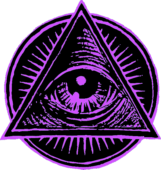I recently read Bob Mould‘s autobiography See a Little Light: The Trail of Rage and Melody. Well, I read the part about Husker Du, anyway, and then sort of skimmed the rest. Not that I have anything against his later stuff, but Husker Du is a difficult act to follow. Husker Du’s history is now well documented, thanks in no small part to Michael Azerrad. He devoted a chapter to Husker Du in his overview of indie rock of the 1980s Our Band Could Be Your Life: Scenes from the American Indie Underground 1981-1991 and he assisted Bob Mould in writing his autobiography (receiving an “and” credit on the byline). Also recently published is Andrew Earles‘s 2010 book Husker Du: The Story of the Noise-Pop Pioneers Who Launched Modern Rock, which includes interviews with Grant Hart and Greg Norton along with many others associated with the band.
The accounts of how Husker Du got their name are not without discrepancies. Bob Mould recounts that at their first gig, the original fourth member of the band, Charlie Pines, had arbitrarily assigned them the name Buddy and the Returnables (with Pines claiming to be Buddy). After Pines had been kicked out of the band they came up with the name Husker Du by riffing on the Talking Heads’ “Psycho Killer,” parodying the Talking Heads’ use of French in the chorus. Rather than “Qu’est-ce que c’est?” someone shouted out “Psycho killer, Husker Du, fa-fa-fa-fa-fa-fa-fa-fa-fa-fa.” Andrew Earles credits Grant Hart with coming up with the phrase Husker Du, but also states that this event occurred during a practice session in Charlie Pines’s kitchen. Of course, it doesn’t really matter who came up with the name or where it originated. The point is that the band members liked the name, which was the name of a board game that had been popular when they were kids. Bob Mould explains,
The beauty of the name was that it shared very little with the typical punk monikers of the day. Most other bands were named [insert adjective] [insert noun]. The name Husker Du was an identifier not a description. Despite the superficial inanity, the name had a certain timelessness, and that avoidance of conformity (now there’s a band name) served us well.
According to BoardGameGeek, Husker Du was published in 1970, designed by Ann M. Jackson, though not credited. Bob Mould relates that in 1987, “In Denver local music publicationWestworld came up with a brilliant idea–introduce the members of Husker Du (the band) to the designer of Husker Du (the board game). That afternoon we all played a round of the game against the inventor, and were soundly trounced.” It may be a board game “where the child can outwit the adult,” but don’t take on the game’s designer!
Husker Du never made much of a secret of their love for 1960s pop. Once the band started to move beyond the hardcore din of Land Speed Record, the distinct voices and songwriting styles of Bob Mould and Grant Hart emerged. Mould’s darker, angrier tone and Hart’s melodic sense invited comparisons to Lennon and McCartney.
The cover photo and layout for the “Makes No Sense at All” 7-inch is a spoof not lost on Beatles’ fans, as the band began to toy with parallels drawn in the music press, which went so far as to call Grant and Bob the “Lennon and McCartney of post-hardcore” (and variations thereof)…. “We started to play into the whole Beatles thing with the ‘Makes No Sense’ sleeve layout and photo, and with the title of the record,” explains Hart. “Some people got that one, some didn’t, but Flip Your Wig was the name of the Beatles board game, and here we are a band named after a board game.”
Flip Your Wig, the Beatles’ board game, was published by Milton Bradley in 1964. Few other bands had their own board game. Among the games listed at BoardGameGeek, only bands that had television shows, such as the Monkees and the Partridge Family rated their own board game.
It’s become somewhat more common for bands to have their own board games in recent years, but game companies no longer try to create a new game for a band. These days rock & roll band board games are special editions of established games, such as Trivial Pursuit or Monopoly. The Beatles and the Rolling Stones each have their own edition of Trivial Pursuit. These bands also have their own Monopoly editions, along with several other bands, including Kiss, the Grateful Dead, Metallica and AC/DC. Far and away the king of rock & roll board games, however, is Elvis. Elvis has multiple editions of Monopoly

